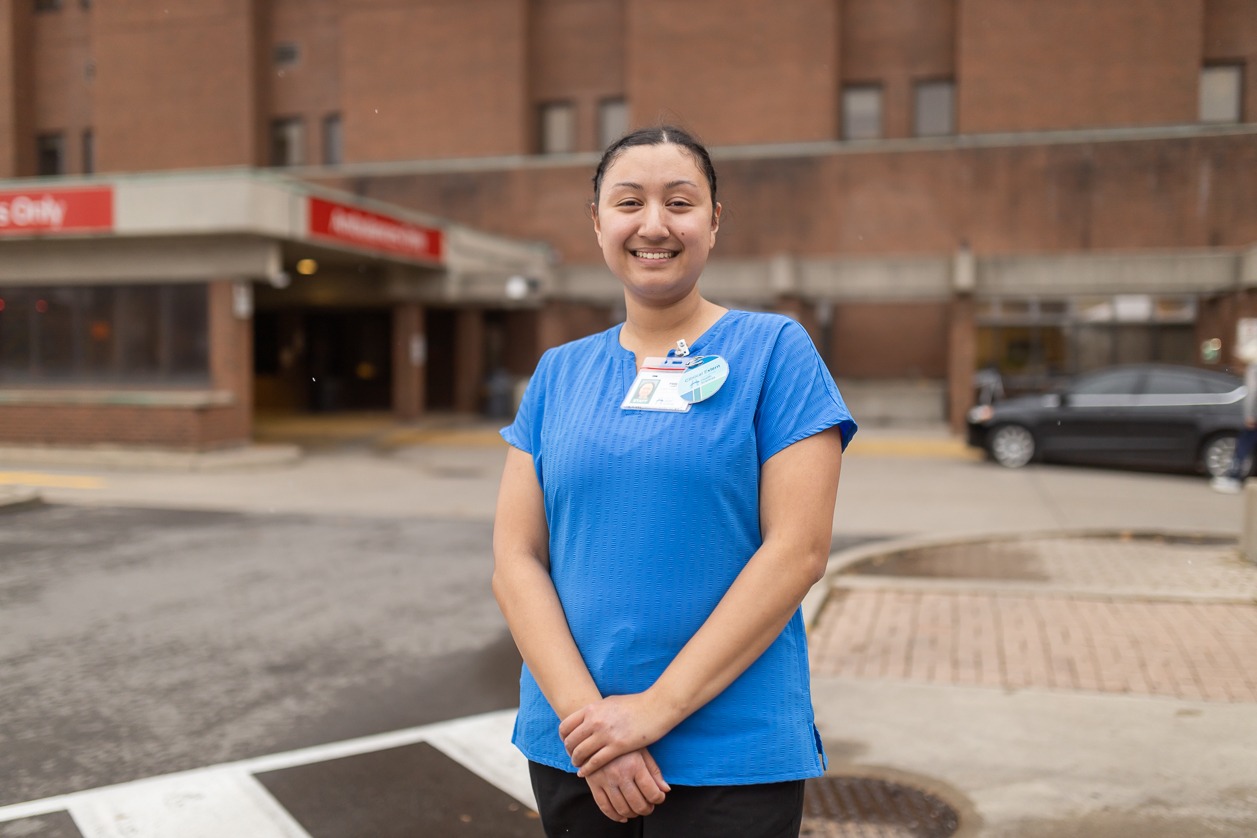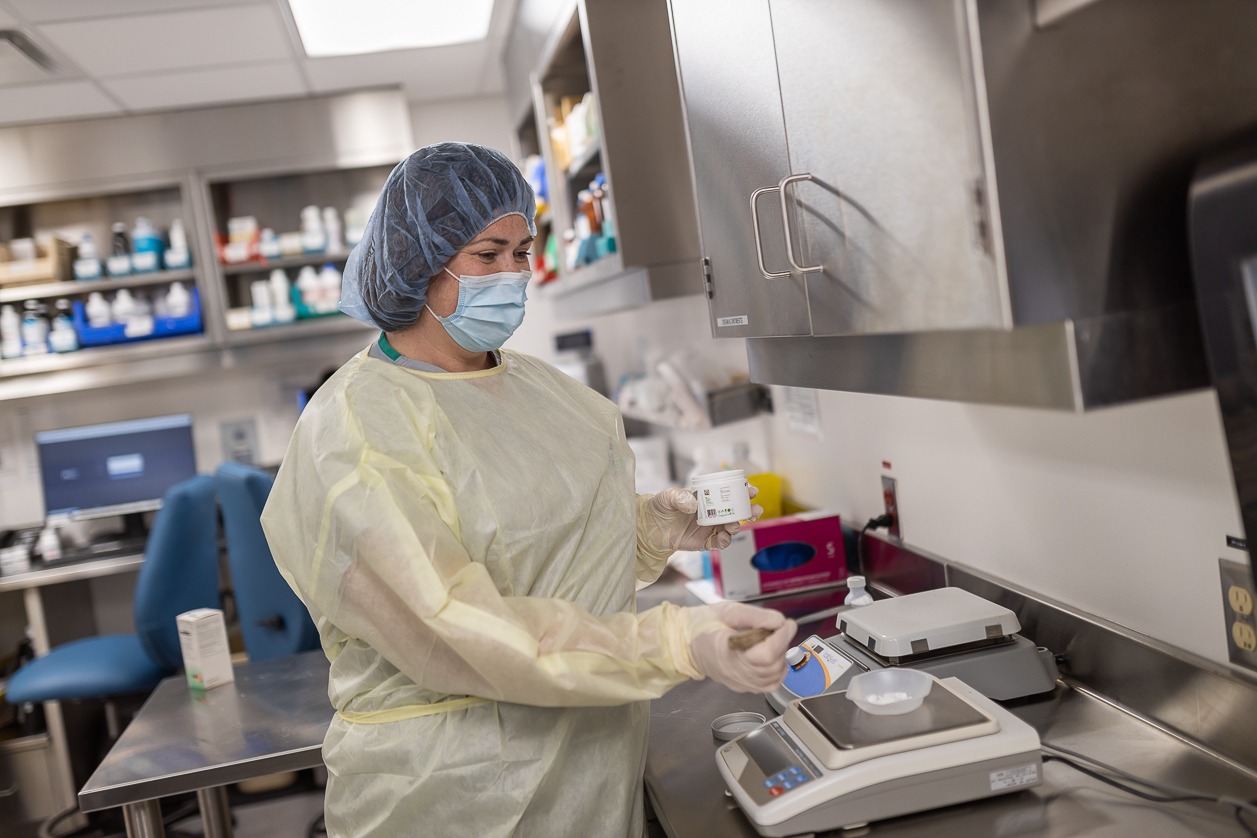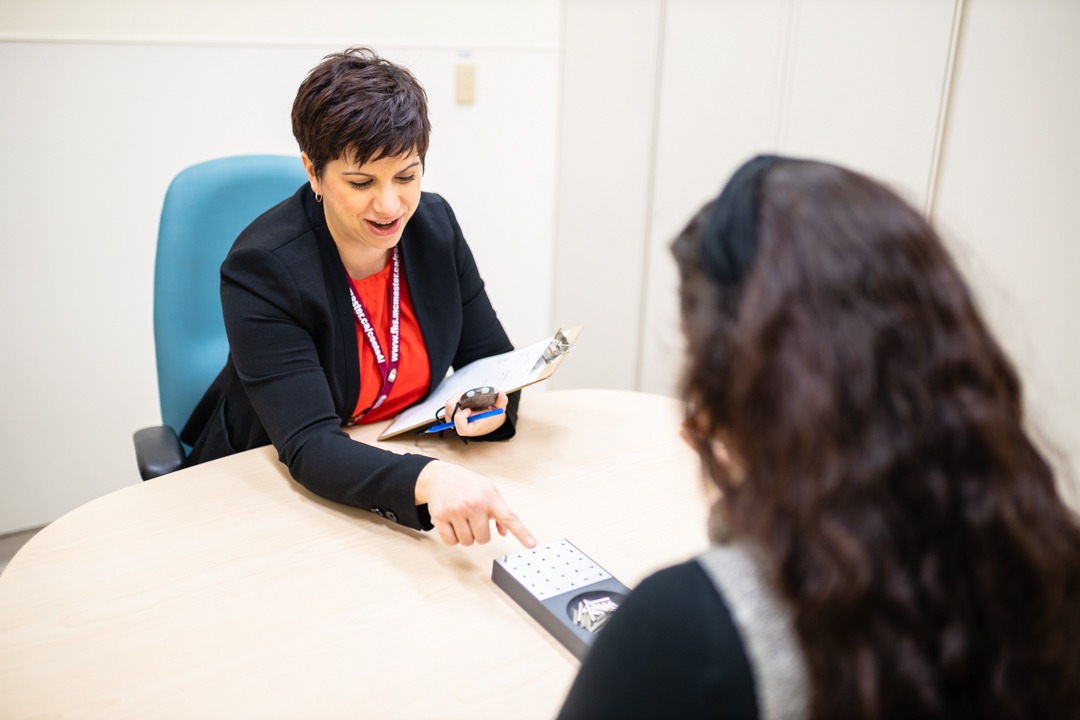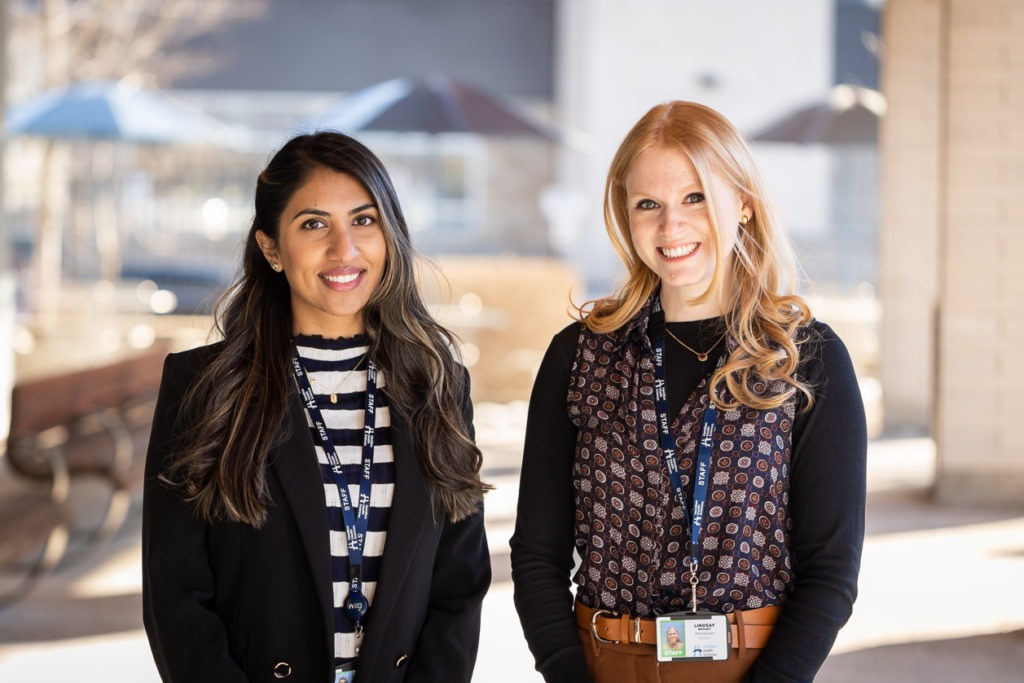
Introducing psychology residents
As a teaching hospital, Hamilton Health Sciences (HHS) offers many learning opportunities for those working towards careers in the health care field. For Psychology Month in February, here’s a glimpse into two clinical psychology residency programs. These programs are part of the Department of Psychiatry and Behavioral Neuroscience at McMaster University, and are executed within our hospitals.
Residency in neuropsychology
K.B. Zaidi is a neuropsychology resident in the Clinical Neuropsychology Residency Program (CNRP) based at HHS’ Regional Rehabilitation Centre.

Khush-Bakht (K.B) Zaidi is a neuropsychology resident at HHS’ Regional Rehabilitation Centre.
Neuropsychology involves determining how well the brain is working when it is disrupted by a brain injury or psychological disorder. These patients require a neuropsychological assessment – a comprehensive test of a wide range of mental functions including behaviour. As a neuropsychology resident, Zaidi conducts these assessments, under the supervision of a registered clinical neuropsychologist. She reviews the patient’s history and concerns, and carries out comprehensive cognitive and psychological testing.
“The assessment is used to examine different cognitive abilities such as memory, attention and concentration, thinking speed, executive functions, language and visuospatial skills,” says Zaidi.
She and her supervisor then share the results with the patient, provide a diagnosis if warranted and recommendations for treatment and rehabilitation.
“It’s been a tremendous amount of learning this year in an environment that really encourages you to excel.”
While Zaidi works mostly with adult patients, Dr. Esther Direnfeld, registered clinical psychologist at HHS and the director of training for the CNRP says, “The program emphasizes training in clinical neuropsychology for both adult and pediatric populations, which is limited in Canada.” This provides a unique opportunity for residents to learn.
“This program has allowed for exposure to very complex and unique cases with a variety of patient populations,” says Zaidi. “Learning from some of the top neuropsychologists in our field has been an excellent opportunity to expand our skills. We also get to work closely in an interdisciplinary setting which allows us to integrate data from all fields to provide the best care for patients.”
Residency in child psychology
Lindsay Bryant is a psychology resident in the Clinical Child Psychology Residency Program (CCPRP) based at HHS’ Ron Joyce Children’s Health Centre (RJCHC). She works in the Child and Youth Mental Health Program and focuses on providing psychological services to pediatric patients.
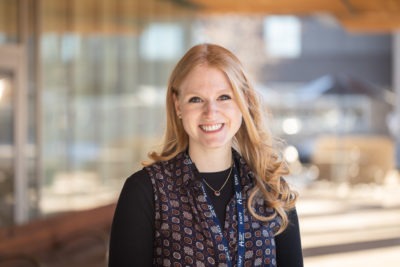
Lindsay Bryant is a psychology resident working in the Child and Youth Mental Health Program at Ron Joyce Children’s Health Centre.
While supervised by a registered clinical psychologist, Bryant will need to provide psychological assessments, treatments, and consultations in the child and youth mental health inpatient unit and mental health assessment unit at McMaster Children’s Hospital, as well as outpatient services at RJCHC by the end of the program.
“I have been fortunate to provide care to children, youth, and their families with a range of complex mental health needs,” says Bryant. “These services include intervention such as individual therapy, parenting support, therapy groups, as well as mental health assessments, comprehensive psychoeducational assessments, and consultation.”
Dr. Katie Lok, registered clinical psychologist at HHS, and training director for the CCPRP says the program is very intensive. “Each resident has at least five to six psychologists supervising them throughout the year. They get hands-on experience that really helps add to their skill set.”
“I think it helps when you are supervised by professionals that really love their job and care about the community and populations they are working with.”
Bryant is nearly half-way into her residency placement at HHS, and shares how the program has surpassed all expectations.
“I already feel like a valued staff member and welcomed by all the supervisors and staff at HHS,” she says. “They really care about meeting learners’ training goals and offering a variety of different experiences to help broaden their clinical training. I think it helps when you are supervised by professionals that really love their job and care about the community and populations they are working with.”
What’s next?
After completing their one-year residency programs, Zaidi and Bryant will move on to a year of supervised practice. This is the final year before becoming registered psychologists where they practice their specialty under the supervision of registered psychologists.
Direnfeld says as a training director it’s her job to equip residents with the training they need in order to be ready for their year of supervised practice.
“It truly is one of the busiest years in the graduate journey,” she says about residency.
Zaidi and Bryant have stepped up to the challenge and are grateful for the learning opportunities they’re receiving and looking forward to the future.
“I’ve found it incredibly helpful to connect with the other psychology and neuropsychology residents and offer support to one another,” says Bryant. “During my supervised practice year, I’ll begin the process of applying to write the necessary examinations required to register with the College of Psychologists of Ontario.”
Zaidi adds, “It’s been a tremendous amount of learning this year in an environment that really encourages you to excel, and be the best clinician that you can be. After this year, I’ll be applying for jobs as a neuropsychologist in supervised practice and will study for our three licensing exams and then apply to be registered as a clinical neuropsychologist.”
Both say they would love to continue their journeys at HHS if the opportunities present themselves.

